 The famous German-speaking Bohemian novelist and short-story writer Franz Kafka wrote this in his diary: "People label themselves with all sorts of adjectives. I can only pronounce myself as 'nauseatingly miserable beyond repair'." I can't compete with the saddest of sad bastards, but a long time ago I felt unrepairable. Now and then I think about that period. Maybe, it's a piece in the puzzle of how I became the Ambassador. How did I became miserable almost beyond repair? I have always considered myself as happy-go-lucky. The catalyst was love. Or more correctly, unrequited love. My highschool sweetheart broke up with me. This served me right. I don't know how she put up with me so long since I constantly stressed tested the relationship. I really had it coming, but when it finally came I was just devasted. Devastation can lead to humiliation. There are units of measure for handling situations maturely. On a scale from 1 to 5, where 1 means bottomless humilation and 5 means dignified stoic calm, I scored approximately 1.2 points. No end of embarrassment. This break-up came when I had no direction in my life. If I had any direction, maybe I would have handled the situation better. Of course, this is meaningless counterfactual thinking. I had just completed mandatory military service with the standard credentials 10-7-7 (behaviour, suitability for the position and knowledge and skills). I have always aimed at mediocrity. Military service was supposed to give me structure and discipline. It didn't take. Rejection could lead to drastic decisions, for example joining the French Foreign Legion for an indissolubly contract of five years (yes, better sorry than safe). However, I was unable to make any decisions and besides, I took German instead of French in school. There's always an excuse. I didn't have a clue of what I wanted to do with my life. I didn't have any money (more than a small discharge pay from the Armed forces), no job or a place to live. This constituted the setting for my miserable story.
The famous German-speaking Bohemian novelist and short-story writer Franz Kafka wrote this in his diary: "People label themselves with all sorts of adjectives. I can only pronounce myself as 'nauseatingly miserable beyond repair'." I can't compete with the saddest of sad bastards, but a long time ago I felt unrepairable. Now and then I think about that period. Maybe, it's a piece in the puzzle of how I became the Ambassador. How did I became miserable almost beyond repair? I have always considered myself as happy-go-lucky. The catalyst was love. Or more correctly, unrequited love. My highschool sweetheart broke up with me. This served me right. I don't know how she put up with me so long since I constantly stressed tested the relationship. I really had it coming, but when it finally came I was just devasted. Devastation can lead to humiliation. There are units of measure for handling situations maturely. On a scale from 1 to 5, where 1 means bottomless humilation and 5 means dignified stoic calm, I scored approximately 1.2 points. No end of embarrassment. This break-up came when I had no direction in my life. If I had any direction, maybe I would have handled the situation better. Of course, this is meaningless counterfactual thinking. I had just completed mandatory military service with the standard credentials 10-7-7 (behaviour, suitability for the position and knowledge and skills). I have always aimed at mediocrity. Military service was supposed to give me structure and discipline. It didn't take. Rejection could lead to drastic decisions, for example joining the French Foreign Legion for an indissolubly contract of five years (yes, better sorry than safe). However, I was unable to make any decisions and besides, I took German instead of French in school. There's always an excuse. I didn't have a clue of what I wanted to do with my life. I didn't have any money (more than a small discharge pay from the Armed forces), no job or a place to live. This constituted the setting for my miserable story.
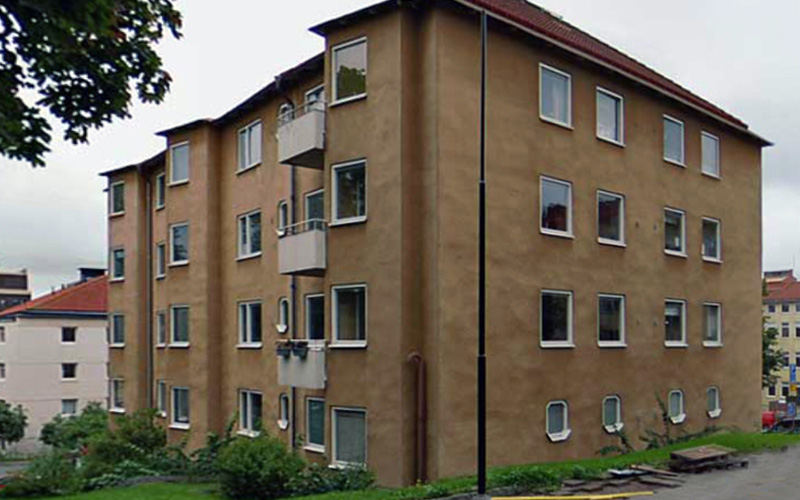 The five stages of dealing with loss and grief are denial, anger, bargaining, depression and acceptance. I was in the denial phase. It was just a bad dream. But, there was not much point in denying that I had to get a job. If not for the money, then to get my mind on something else than my self-induced misery. Mea culpa, mea culpa, mea maxima culpa. My father told me if I wanted a job he could pull some strings. The string-pulling resulted in an interview for a position as process operator in the pharmaceutical industry. I had no formal training for the job, but considerable practical experience from assembling and dismantling. I pulled myself together for the interview. It was conducted by the kind and reticent manager of the plant. The interview was over in no time. I got the job. I suppose, not because of my personal charm, but due to the fact that the manager knew and respected my father. I was also offered a short-term lease through the employer. It was a tiny overnight flat for travelling mechanics. I was miserable, but a job and a temporary lease made me feel more comfortable (coming from a low level). The flat was a dump with considerable renovation needs. I wasn't alone. There were lot of silverfishes in the bathroom and in the kitchenette. I didn't care. The flat had a good location in a suburb north of Stockholm. You could go to the city in less than 10 minutes with the commuter train or by the metro. In those days the suburb was populated by poly drug users, odd existences and old people with small pensions. Anyway, the suburb had its charm. In recent years the suburb has been (hostile) taken over by hipsters. It's Swedens smallest, most densely populated and fastest growing municipality. I didn't see that coming in the beginning of the 1980s. Of course, my stay there didn't last long. After a couple of months I was asked to move out. Apparently, the real mechanics were coming. I didn't see that coming either. I had I blocked out the word "temporary". I tried to play dead. It didn't help. They insisted. I had to find another place and I didn't have much time. I thought this is as bad as it can be. I was wrong. It went from bad to worse.
The five stages of dealing with loss and grief are denial, anger, bargaining, depression and acceptance. I was in the denial phase. It was just a bad dream. But, there was not much point in denying that I had to get a job. If not for the money, then to get my mind on something else than my self-induced misery. Mea culpa, mea culpa, mea maxima culpa. My father told me if I wanted a job he could pull some strings. The string-pulling resulted in an interview for a position as process operator in the pharmaceutical industry. I had no formal training for the job, but considerable practical experience from assembling and dismantling. I pulled myself together for the interview. It was conducted by the kind and reticent manager of the plant. The interview was over in no time. I got the job. I suppose, not because of my personal charm, but due to the fact that the manager knew and respected my father. I was also offered a short-term lease through the employer. It was a tiny overnight flat for travelling mechanics. I was miserable, but a job and a temporary lease made me feel more comfortable (coming from a low level). The flat was a dump with considerable renovation needs. I wasn't alone. There were lot of silverfishes in the bathroom and in the kitchenette. I didn't care. The flat had a good location in a suburb north of Stockholm. You could go to the city in less than 10 minutes with the commuter train or by the metro. In those days the suburb was populated by poly drug users, odd existences and old people with small pensions. Anyway, the suburb had its charm. In recent years the suburb has been (hostile) taken over by hipsters. It's Swedens smallest, most densely populated and fastest growing municipality. I didn't see that coming in the beginning of the 1980s. Of course, my stay there didn't last long. After a couple of months I was asked to move out. Apparently, the real mechanics were coming. I didn't see that coming either. I had I blocked out the word "temporary". I tried to play dead. It didn't help. They insisted. I had to find another place and I didn't have much time. I thought this is as bad as it can be. I was wrong. It went from bad to worse. 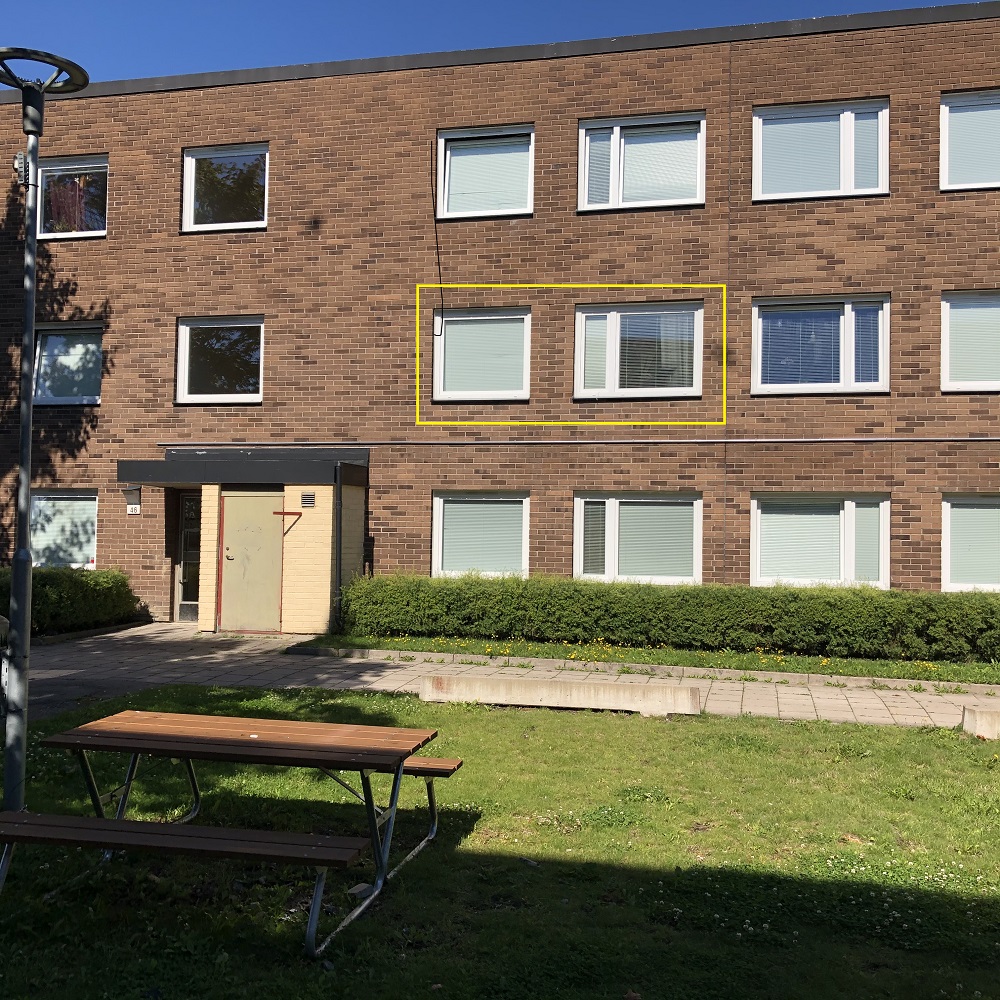 I had no idea where to go. A co-worker told me that I probably could get a flat if I moved northwardly. To be more precise, 35 km (22 miles) northwest from the dump. One advantage, according to my co-worker, was that it was close to the workplace. A few co-workers lived there. I didn't have any other options so I called the housing company and I got a lease the same day. In fact, they had many vacant objects to choose from. I chose to ignore the huge warning sign. How bad could it be? It turned out to be very bad. It was a depressing place. There was absolutely nothing wrong with the flat, 64 sqm (690 square feet) clean and newly renovated. It was three times as big as the dump. The flat was located in an impersonal residential area built in 1973. It was placed on a field. You can only wonder why? The local politicians must have suffered from megalomania when they tried to convert a small locality (6 666 inhabitants in 1980) in the middle of nowhere to something bigger. Build and economic growth will come seems to have been the adopted strategy. However, the future never came. It attracted people with few options and with no or little income, like myself. Social problems existed already in the 1980s, but were manageable. Today it's a vulnerable area, a term applied by police in Sweden to areas with high crime rates and social exclusion. Stockholm was far away, not only in terms of physical distance. There was a small town mentality. In those days it was hard just to get to Stockholm (bus ride and connecting commuter train). The commuter train didn't run after midnight. The night bus took ages, which discouraged you from going to Stockholm. The locality lacked identity and character. In short: a hellhole. I really hated the place. There was a small center with a supermarket and a pharmacy, but no liquor store (state monopoly in Sweden), although the customer base clearly existed (a lot of hard-drinking Finns). The proximity to the workplace wasn't any advantage. This only meant that you could eat, sleep and die conveniently close to your home. This wasn't a good environment for any repairments.
I had no idea where to go. A co-worker told me that I probably could get a flat if I moved northwardly. To be more precise, 35 km (22 miles) northwest from the dump. One advantage, according to my co-worker, was that it was close to the workplace. A few co-workers lived there. I didn't have any other options so I called the housing company and I got a lease the same day. In fact, they had many vacant objects to choose from. I chose to ignore the huge warning sign. How bad could it be? It turned out to be very bad. It was a depressing place. There was absolutely nothing wrong with the flat, 64 sqm (690 square feet) clean and newly renovated. It was three times as big as the dump. The flat was located in an impersonal residential area built in 1973. It was placed on a field. You can only wonder why? The local politicians must have suffered from megalomania when they tried to convert a small locality (6 666 inhabitants in 1980) in the middle of nowhere to something bigger. Build and economic growth will come seems to have been the adopted strategy. However, the future never came. It attracted people with few options and with no or little income, like myself. Social problems existed already in the 1980s, but were manageable. Today it's a vulnerable area, a term applied by police in Sweden to areas with high crime rates and social exclusion. Stockholm was far away, not only in terms of physical distance. There was a small town mentality. In those days it was hard just to get to Stockholm (bus ride and connecting commuter train). The commuter train didn't run after midnight. The night bus took ages, which discouraged you from going to Stockholm. The locality lacked identity and character. In short: a hellhole. I really hated the place. There was a small center with a supermarket and a pharmacy, but no liquor store (state monopoly in Sweden), although the customer base clearly existed (a lot of hard-drinking Finns). The proximity to the workplace wasn't any advantage. This only meant that you could eat, sleep and die conveniently close to your home. This wasn't a good environment for any repairments.
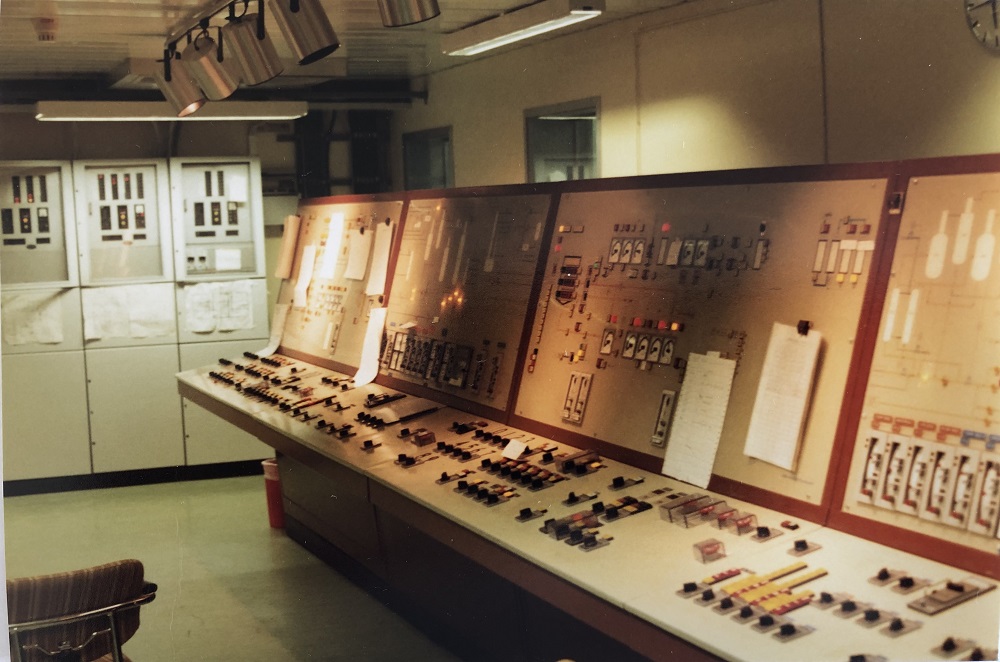 The workplace was the cutting edge in the beginning of the 1980s. Built from scratch in an industrial area placed in the middle of nowhere. The staff was relocated from the already existing plant in Stockholm. The hygiene standards were high. You were obliged to wear a hairnet and to change your clothes and shoes when entering another zone. The control room had a futuristic starship bridge design and was placed in the center of the plant. From here you monitored the two processes contained in a closed system. The plant produced raw products for intraveneous nutrion solutions. The were two processes: extracting oil from soja beans with hexane and extracting phospholipids from egg yolk powder with ethanol. The two processes required large quantities of hexane and ethanol, which were recycled. Of course, I was never let near the recycling. The risk was imminent that I would have blown the whole plant to kingdom come. The security protocol was rigorous. Hexane leakage is extremely dangerous. The control panel lit up like a Christmas tree. We wore protective masks and used non-sparking tools and started to fix the problem. We were gathered on the starship bridge for most of the time. My main tasks were monitoring the phospholipids process, studying charts and writing notes over levels, pressure, flows and temperature. Sometimes a button on the control panel would indicate a problem. Then you had to do something about it. You opened the heavy process manual and started to locate the problem, for example a particular valve. Some valves malfunctioned more than others. Next step was to find it physically among hundreds of valves. In most cases, if you gave the valve a good kick with your steel cap shoes it would open with a squeak. The sensor would indicate that the valve was open and, hopefully, the button on the control board had stopped flashing. Finally, you would write a maintenance report that it needed lubrication. On the last shift before the weekend - when there was no production - the steel containers and equipment were meticulously cleaned, floors were scrubbed with lye, formaldehyde was prepared to circulate in the closed system and formol in stainless steel cups were placed in floor drains to prevent bacterial growth. It was a toxic work environment. However, our employer maintained a ambitious health and safety culture. We were obliged to undergo lung x-ray on a regular basis. The young and pretty nurse told me to undress. The x-rays were taken. Afterwards, she told me that next time I didn't need to be completely naked for the x-rays. Taking off my clothes on the upper body would be sufficient. No end of embarrassment.
The workplace was the cutting edge in the beginning of the 1980s. Built from scratch in an industrial area placed in the middle of nowhere. The staff was relocated from the already existing plant in Stockholm. The hygiene standards were high. You were obliged to wear a hairnet and to change your clothes and shoes when entering another zone. The control room had a futuristic starship bridge design and was placed in the center of the plant. From here you monitored the two processes contained in a closed system. The plant produced raw products for intraveneous nutrion solutions. The were two processes: extracting oil from soja beans with hexane and extracting phospholipids from egg yolk powder with ethanol. The two processes required large quantities of hexane and ethanol, which were recycled. Of course, I was never let near the recycling. The risk was imminent that I would have blown the whole plant to kingdom come. The security protocol was rigorous. Hexane leakage is extremely dangerous. The control panel lit up like a Christmas tree. We wore protective masks and used non-sparking tools and started to fix the problem. We were gathered on the starship bridge for most of the time. My main tasks were monitoring the phospholipids process, studying charts and writing notes over levels, pressure, flows and temperature. Sometimes a button on the control panel would indicate a problem. Then you had to do something about it. You opened the heavy process manual and started to locate the problem, for example a particular valve. Some valves malfunctioned more than others. Next step was to find it physically among hundreds of valves. In most cases, if you gave the valve a good kick with your steel cap shoes it would open with a squeak. The sensor would indicate that the valve was open and, hopefully, the button on the control board had stopped flashing. Finally, you would write a maintenance report that it needed lubrication. On the last shift before the weekend - when there was no production - the steel containers and equipment were meticulously cleaned, floors were scrubbed with lye, formaldehyde was prepared to circulate in the closed system and formol in stainless steel cups were placed in floor drains to prevent bacterial growth. It was a toxic work environment. However, our employer maintained a ambitious health and safety culture. We were obliged to undergo lung x-ray on a regular basis. The young and pretty nurse told me to undress. The x-rays were taken. Afterwards, she told me that next time I didn't need to be completely naked for the x-rays. Taking off my clothes on the upper body would be sufficient. No end of embarrassment.
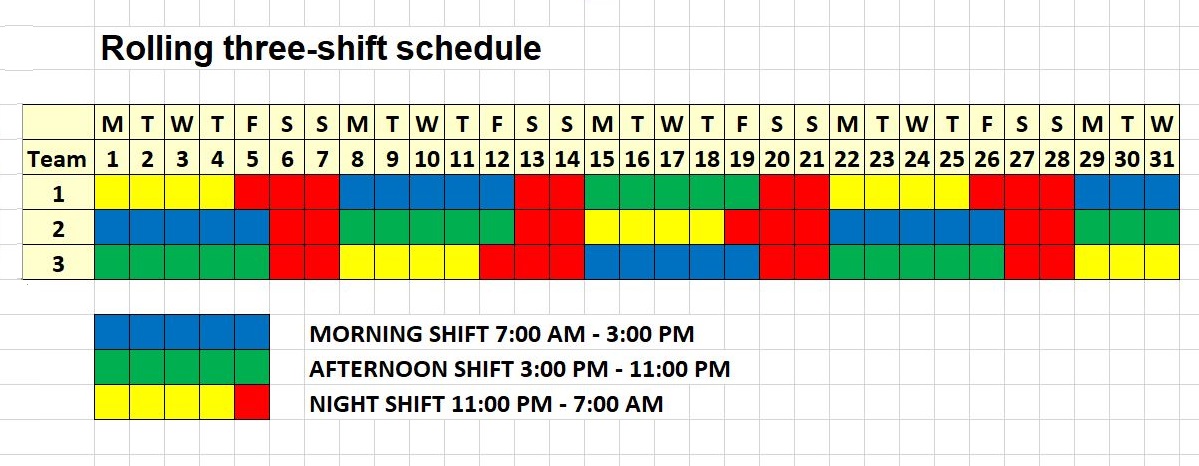
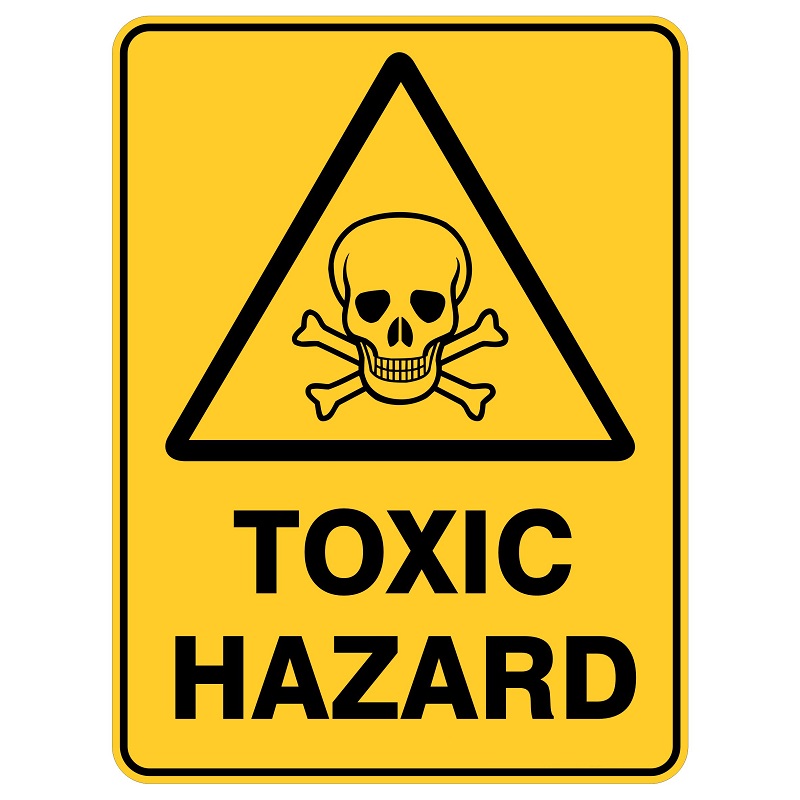 Some people want to cheer you up and say: "There are plenty more fish in the sea". I don't know how this is going to help. You’re not interested in fish in general. You’re interested in one fish. The one that got away. Some say misery loves company. That's not true. Misery doesn't love anyone or anything. I was on a long slippery slope. It didn't take long to go from top physical shape in military service to flabby overweight. And it didn't take long to go from being a social person to being an introvert recluse. Who said no thank you to everyone and everything when some activity was suggested. I just wanted to be alone in my misery. Some say if you can't be with the one you love, love the one you're with. It may work as a song lyric, but not in real life. In fact, it's a terrible bad advice. Different input values in a relationship will never balance. It will end in tears. You might think that being miserable makes you responsive and full of empathy for others. Oh, no. That's not how it works. Instead, you will become self-centred and inconsiderate or even cruel for that matter. Especially to someone who, for some inexplicable reason, cares about you. I was quite toxic and should be made to wear a warning sign. In another blog entry I wrote about success theology and the infamous Landmark Education, read more here (opens in a new window). In one of their many expensive courses the participants were instructed to contact people who they have treated badly, done wrong or offended and ask for forgiveness. The success rate (be forgiven) was far from 100 percent. With Shakespeare's words, "what's done cannot be undone". Some things are better left as they are. Some say, you've made your bed, now lie in it. There was no shortage of laying in bed. I lay in bed, either staring blankly at the ceiling or reading depressing books by Nobel prize winner Pär Lagerkvist or listening to Bob Dylan's song Sara over and over again. "Don't ever leave me, don't ever go". No end of embarrassment. This isn't very constructive when you know deep down inside that you have to make a major change in your life.
Some people want to cheer you up and say: "There are plenty more fish in the sea". I don't know how this is going to help. You’re not interested in fish in general. You’re interested in one fish. The one that got away. Some say misery loves company. That's not true. Misery doesn't love anyone or anything. I was on a long slippery slope. It didn't take long to go from top physical shape in military service to flabby overweight. And it didn't take long to go from being a social person to being an introvert recluse. Who said no thank you to everyone and everything when some activity was suggested. I just wanted to be alone in my misery. Some say if you can't be with the one you love, love the one you're with. It may work as a song lyric, but not in real life. In fact, it's a terrible bad advice. Different input values in a relationship will never balance. It will end in tears. You might think that being miserable makes you responsive and full of empathy for others. Oh, no. That's not how it works. Instead, you will become self-centred and inconsiderate or even cruel for that matter. Especially to someone who, for some inexplicable reason, cares about you. I was quite toxic and should be made to wear a warning sign. In another blog entry I wrote about success theology and the infamous Landmark Education, read more here (opens in a new window). In one of their many expensive courses the participants were instructed to contact people who they have treated badly, done wrong or offended and ask for forgiveness. The success rate (be forgiven) was far from 100 percent. With Shakespeare's words, "what's done cannot be undone". Some things are better left as they are. Some say, you've made your bed, now lie in it. There was no shortage of laying in bed. I lay in bed, either staring blankly at the ceiling or reading depressing books by Nobel prize winner Pär Lagerkvist or listening to Bob Dylan's song Sara over and over again. "Don't ever leave me, don't ever go". No end of embarrassment. This isn't very constructive when you know deep down inside that you have to make a major change in your life.

